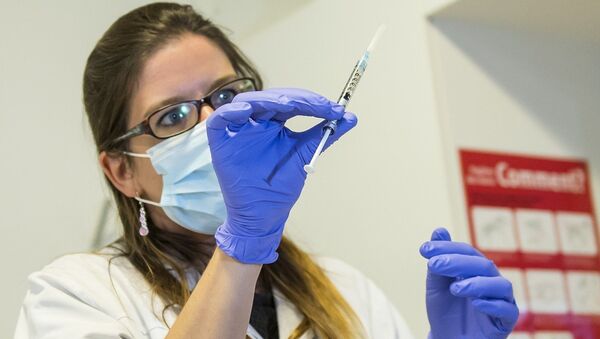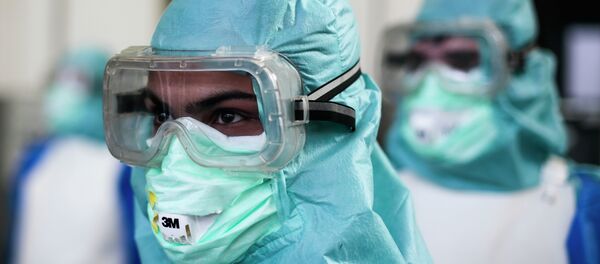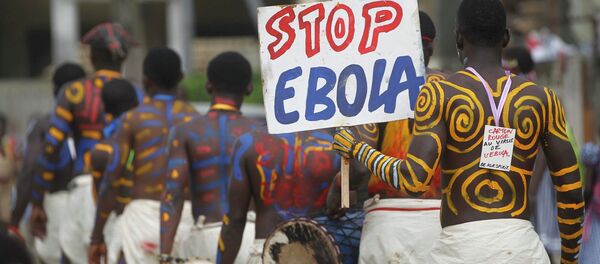WASHINGTON, December 24 (Sputnik) – Two government contracts to pharmaceutical companies could help accelerate the development and large-scale manufacture of two US Ebola vaccines, the country's Department of Health and Human Services (DHHS) has announced.
"Contracts to speed further development of two promising Ebola vaccines…could pave the way for commercial scale production of millions of vaccine doses if clinical trials prove safety and efficacy," the DHHS said in a statement Tuesday.
Under the contracts, pharmaceutical giant GlaxoSmithKline will move from the current pilot phase of Ebola vaccine testing and scale up manufacturing ability to potentially produce millions of vaccines if clinical trials are successful.
"The manufacturing scale-up of any vaccine is a complex process and differs greatly from producing the small number of doses typically used for preclinical research or early stage clinical trials," the DHHS statement explained.
According to the department, if manufacturing is increased now, the time it will take GlaxoSmithKline to produce Ebola vaccines on a large scale could be reduced from three years to between nine and twelve months, if clinical trials are effective.
A second DHHS contract with BioProtection Systems will determine the lowest dose of an experimental vaccine required to create an immune response.
"Defining the lowest dose at which the vaccine works will enable the greatest number of people to be vaccinated," the DHHS explained.
According to DHHS, clinical trials of US Ebola vaccines on volunteers in West Africa could begin in early 2015.
The current Ebola outbreak in West Africa started in Guinea at the end of last year and later spread to the neighbouring countries. Some Ebola cases have been reported outside of West Africa, including in the United States.
According to the latest figures from the World Health Organization (WHO) the death toll from the Ebola outbreak has reached 7,373.
Ebola is spread through direct contact with the bodily fluids of those infected. There is no officially-approved cure for the virus yet, but several countries, including Russia, have been working on developing Ebola vaccines.




